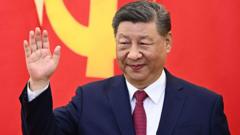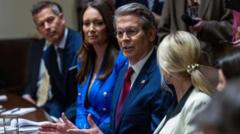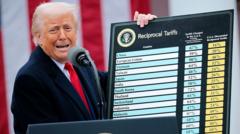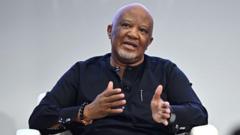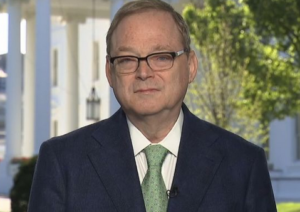This article explores both the optimism around a UK-US trade deal and the underlying challenges, including tariffs, regulatory alignments, and geopolitical considerations.
**UK-US Trade Deal: Opportunities Amidst Complexities**

**UK-US Trade Deal: Opportunities Amidst Complexities**
The intricacies of potential trade agreements between the UK and the US highlight contrasting interests and expectations.
The recent remarks by US Vice-President JD Vance indicating a promising outlook for a trade deal with the UK reflect an encouraging sentiment in transatlantic relations. Vance emphasized that the relationship between the UK and the US could facilitate the negotiation of trade terms more smoothly than with other European nations. UK business and trade minister Sarah Jones echoed this optimism, stating that ongoing discussions aim to eliminate tariffs, a concern shared by both sides.
However, the essence of the proposed "deal" needs further clarification. Following Prime Minister Sir Keir Starmer's visit to the White House in February, UK officials began referring to the negotiations as an "economic deal," indicating that the scope may not encompass a comprehensive free trade agreement covering a wide array of goods. Historical context shows that while trade talks progressed during Donald Trump's presidency, they faced hurdles due to contentious issues such as pharmaceutical pricing and agricultural standards.
Currently, the dialogue seems pivoted toward collaboration in science, technology, and artificial intelligence, tied to trade considerations like tariff avoidance. Nonetheless, the US has implemented a 10% tax on UK imports described as "reciprocal tariffs." This tariff is seen as a permanent feature of US trade policy, which complicates negotiations significantly, especially since the UK imports more from the US than it exports—a unique position compared to many other trading nations facing higher tariffs.
While the UK seeks to improve its trade terms, it must contend with the US's established trade framework that includes exemptions benefiting countries like China, which highlights the challenges UK industries face, such as the elevated 25% tariff on cars. Simultaneously, as the UK approaches upcoming negotiations with the EU aimed at streamlining export rules, it may find that potential US negotiations intersect with its broader economic goals.
Moreover, there are geopolitical dimensions that may influence the US-UK trade discussions. US officials have expressed an interest in consolidating allied actions to counter China's influence, potentially placing the UK in a position where it might feel pressured to align its trade policies with US expectations or risk emerging global dynamics.
Amidst these complexities, recent turbulence in US financial markets may have shifted the balance of leverage slightly in favor of the UK, raising questions about how the US approaches these negotiations. As both nations strive for a beneficial outcome, the path forward is laden with intricacies that will require careful navigation to achieve mutual economic interests while maintaining broader geopolitical ambitions.




